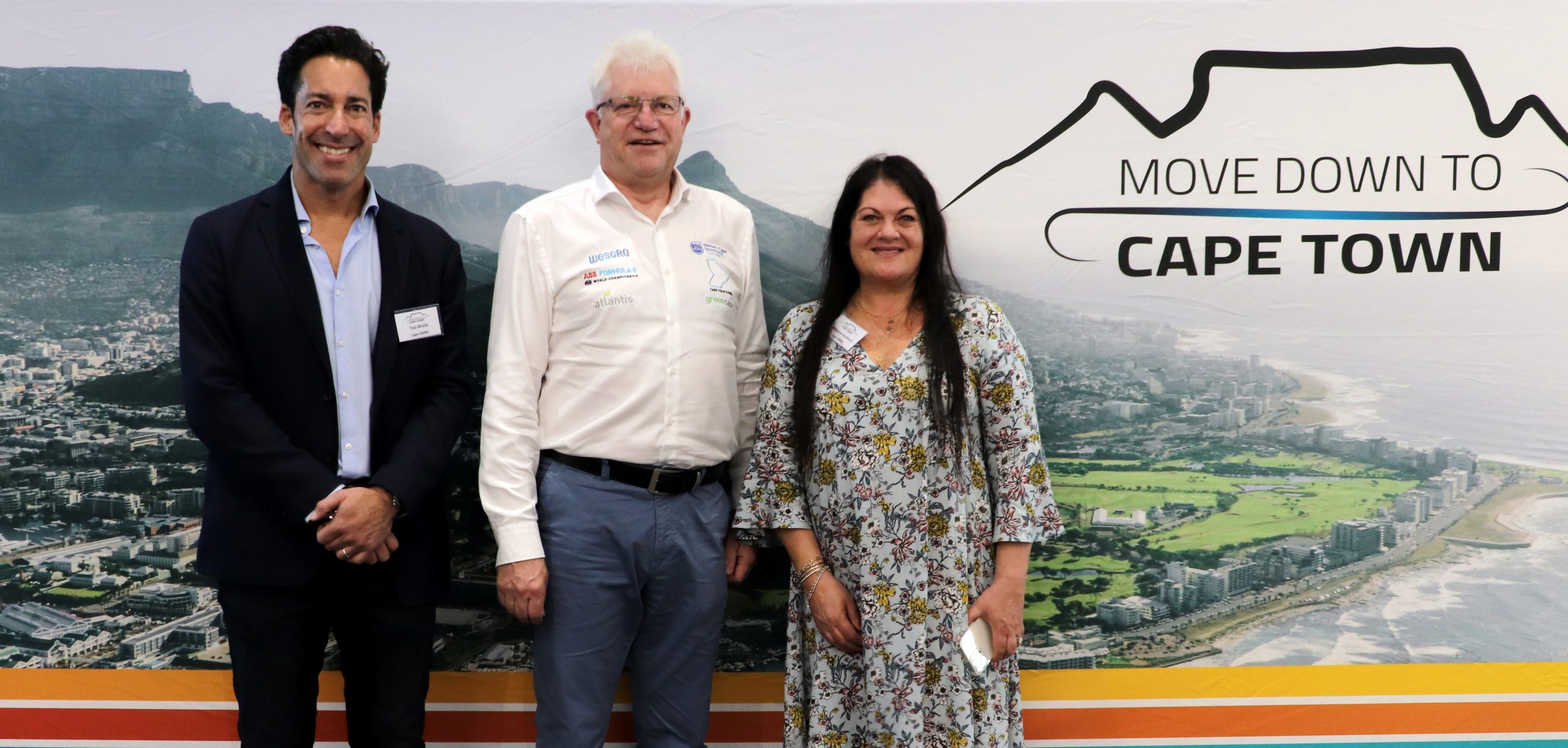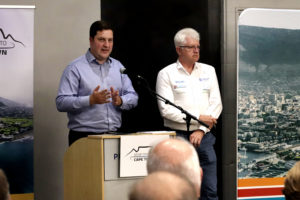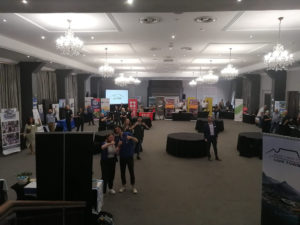
Community

Joburgers urged to move to the Cape rather than emigrate
For Gauteng residents considering emigration, “semigration” to Cape Town can offer new hope within South Africa’s borders. So said Cape Town Executive Mayor Geordin Hill-Lewis and Western Cape Premier Alan Winde, at the “Move Down to Cape Town Expo” hosted by the Cape South African Jewish Board of Deputies (Cape Board) in Johannesburg this past weekend.
“This is a first,” said Winde, speaking of the Cape Board’s Western Cape Semigration Project, which encourages Jewish Joburgers seeking greener pastures overseas to move to Cape Town instead. “I thought it was a great initiative, and the mayor and I both jumped at it immediately.”

Hill-Lewis agreed. “We’re constantly engaging communities around the country and around the world to sell Cape Town as a place to live and invest,” he said. This applies to religious groups, businesses, and any form of organised community. “We’re competitive about promoting Cape Town.”
Primarily aimed at Jewish students, young families, empty nesters, or migrant workers, the Cape Board’s Western Cape Semigration Project positions Cape Town as a viable option for those looking to leave Gauteng, and also facilitates networking and support once they make the move. Attracting more than 100 families who connected with multiple Jewish organisations involved in education, religion, property, and employment, the expo illuminated the opportunities and community structures that await those who choose to make the move.
Cape Board Chairperson Adrienne Jacobson explained what makes Cape Town’s Jewish community special. “We’re a kaleidoscope of opinions, experiences, diversity, talents, and passions,” she said. “We’re welcoming, and we’re haimish. We have a strong sense of togetherness, and when there’s a crisis, we don’t stand on ceremony.”

Jacobson emphasised the importance of such support structures when facing the challenges that come with moving to a new place, something she said the Cape Town Jewish community provides in abundance.
The expo also allowed the Joburg Jewish community to engage with the city and provincial leadership. Cape Town is actively investing in programmes and incentives to ensure that it functions optimally, said Hill-Lewis. Joking that he’d put in a budget recommendation for a Jewish padel club to sweeten the semigration deal, he said the Cape Town government was actively working to address the challenges the country faces.
“There’s a Hebrew word that I think perfectly describes what sets Cape Town apart and that’s what we’re trying to do here,” he said. “That word is aleinu [it’s on us]. We’re saying that it’s not good enough to sit around and wait for all of South Africa’s problems to be solved by someone else. We’re trying to solve them ourselves.”
“We’re determined to address every one of the things that make us as parents and as South Africans anxious and concerned, and that make us question where we want to raise our kids. If we’re assertive and ambitious enough, we believe that we can address these issues. It’s up to us to show that South Africa can work, that we can do something about it.”
Hill-Lewis also spoke of how hard the city pushes to attract and retain the business community, especially when it comes to curtailing emigration. His government is dedicated to making Cape Town the easiest place in which to do business on the African continent. Security of electricity supply is vital in attaining this goal, he said, and it’s a fight Cape Town is winning. Indeed, the first aspect of his government’s electoral mandate is to end loadshedding.
Though Cape Town always offers one stage of loadshedding protection, 65% of the time it provides two stages of protection. This is done through the local Steenbras hydroelectric power plant. So, if the country is on stage four, Cape Town will most often be on stage two. “We have a clear plan and budget that we’re executing with discipline to get to three stages of loadshedding protection and eventually four stages, so we can, over time, say goodbye to loadshedding,” said Hill-Lewis.
The Western Cape is also attracting massive green energy investment, has concluded independent power procurement deals, and is the only South African city to have launched a wheeling pilot programme, with sources of power generation to sell to third parties inside the city through the existing power grid.
The Cape Town government has also made great strides in its initiatives to make the city safer. “There’s only one city in the whole country where violent crime is coming down, and that’s Cape Town thanks to the interventions we’re rolling out in most crime-ridden parts of the city including increasing police presence,” said Hill-Lewis. “We’re pushing hard for more policing powers in the province and city.” They’re also rolling out multiple crime-tech initiatives with the entire city set to come under drone surveillance.
These are just some initiatives aimed at making the city function at optimum levels. “Cape Town is not without its challenges,” Hill-Lewis admitted. “It’s a South African city, and we love the fact that it’s a South African city. Yet, we’re not going to accept those challenges as insurmountable or unsolvable. We believe we can do something about it.”
Winde echoed this assertion, urging attendees not to miss what he termed “the Good-Hope rush”.
“I welcome every single person to our province because if you decide you want to come to the Western Cape for opportunities, healthcare, education, lifestyle, you’re prepared to take a little bit more risk than the next person,” he said. “That’s how any of the big economies of the world have been built over millennia. It’s about risk takers joining hands, coming to a geographic space, and growing that economy together.
“We would like to welcome you to be part of finding solutions for the people of our province and for South Africa. Coming to the Western Cape isn’t just about finding a place to live. It’s also about coming to a place to work, to invest, and to a place where you can actually make a big difference.”











Ridwaan
November 28, 2023 at 2:59 pm
The DAs racist motives are so clear. They should stop pretending that the rest of South Africa are too stupid to see what they are doing. This white supremacy bullshit must stop, or we are heading for trouble! When did they go to the Eastern Cape and Northern Cape to encourage people to move to Cape Town? Are they hoping to establish a mini Israel in Cape Town? They’re bound to get a run for their Apartheid money! Apartheid is definitely still alive and well within the DA. I am not going back to the white man telling me what to do. Aluta continua!!!